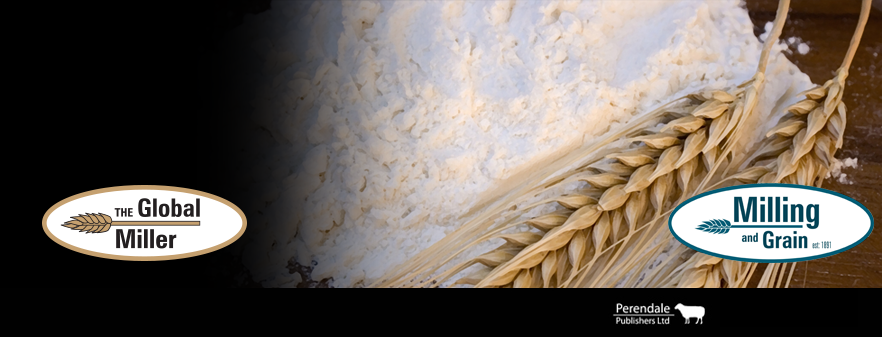Only
3 percent or less of the world’s soy supply is currently certified
under one of the standards designed to promote more responsible
production, according to a new paper published today by KPMG
International – A Roadmap to Responsible Soy: approaches to increase certification and reduce risk.
This means that soy lags far behind other commodities where levels of certified production are much higher. For example, 50 percent of non-farmed whitefish is now certified, 16 percent of coffee and 14 percent of global palm oil production.
The KPMG paper is published in collaboration with the Sustainable Trade Initiative (IDH), WWF, FMO (the Netherlands Development Finance Company) and the International Finance Corporation (IFC). It is timed to coincide with the 8th International Conference on Responsible Soy (RT8) taking place in Beijing on May 28-29, 2013.
A Roadmap to Responsible Soy, part of KPMG’s Sustainable Insight series, identifies the barriers preventing growth in certified responsible soy production and presents an action plan to overcome them. The four key barriers are:
Co-author of the paper, Jerwin Tholen of KPMG in the Netherlands, said, “Soy production is soaring driven by population growth and increasing wealth in the developing world. But as production grows so do the industry’s environmental and social impacts. The very low level of certified soy in the supply chain at the moment presents a risk to large-scale users of soy especially food producers and retailers. Global NGO and activist campaigns have targeted palm oil in recent years, but attention is also being paid to soy.
“Addressing the barriers to responsible soy production is not a job for soy producers alone. It needs a collaborative approach across the supply chain from producers and end-users, traders and processors, investors and certification bodies, and governments and consumers.”
Key actions recommended in the paper include:
The KPMG study, commissioned by IDH and co-funded by WWF, FMO and IFC, found that the average payback period for soy producers’ investment in certification is only 3 years and, for larger, better prepared farmers, can be as little as 1 year.
Says Jerwin Tholen of KPMG said, “Given that end-user companies such as manufacturers of food, animal feed and biofuel, arguably face the greatest risks from slow progress towards certification, KPMG recommends that these companies should evaluate the issues and potential impacts, and develop a response strategy and plan of action.”
A roadmap to responsible soy also includes a framework of actions to assist companies in developing an effective response strategy.
Download the report.
This means that soy lags far behind other commodities where levels of certified production are much higher. For example, 50 percent of non-farmed whitefish is now certified, 16 percent of coffee and 14 percent of global palm oil production.
The KPMG paper is published in collaboration with the Sustainable Trade Initiative (IDH), WWF, FMO (the Netherlands Development Finance Company) and the International Finance Corporation (IFC). It is timed to coincide with the 8th International Conference on Responsible Soy (RT8) taking place in Beijing on May 28-29, 2013.
A Roadmap to Responsible Soy, part of KPMG’s Sustainable Insight series, identifies the barriers preventing growth in certified responsible soy production and presents an action plan to overcome them. The four key barriers are:
- Weak market demand for certified soy
- Variable availability of certified soy
- Fragmentation of the certification landscape
- The cost of certification for soy farmers.
Co-author of the paper, Jerwin Tholen of KPMG in the Netherlands, said, “Soy production is soaring driven by population growth and increasing wealth in the developing world. But as production grows so do the industry’s environmental and social impacts. The very low level of certified soy in the supply chain at the moment presents a risk to large-scale users of soy especially food producers and retailers. Global NGO and activist campaigns have targeted palm oil in recent years, but attention is also being paid to soy.
“Addressing the barriers to responsible soy production is not a job for soy producers alone. It needs a collaborative approach across the supply chain from producers and end-users, traders and processors, investors and certification bodies, and governments and consumers.”
Key actions recommended in the paper include:
- Increased commitment to certification by end users of soy including major food and retail brands
- Greater collaboration between the many and various certification schemes to align their assessment criteria and processes, and improve mutual recognition
- Financial support from soy processors to assist farmers in funding the up-front costs of certification
- Greater demand from banks for certification as a pre-condition to providing finance to companies in the soy supply chain
- More financial incentives for certification to be provided by governments, for example through their tax systems
The KPMG study, commissioned by IDH and co-funded by WWF, FMO and IFC, found that the average payback period for soy producers’ investment in certification is only 3 years and, for larger, better prepared farmers, can be as little as 1 year.
Says Jerwin Tholen of KPMG said, “Given that end-user companies such as manufacturers of food, animal feed and biofuel, arguably face the greatest risks from slow progress towards certification, KPMG recommends that these companies should evaluate the issues and potential impacts, and develop a response strategy and plan of action.”
A roadmap to responsible soy also includes a framework of actions to assist companies in developing an effective response strategy.
Download the report.
| English: Soy bean at Carimagua, in Colombia's eastern plains, or Llanos (Photo credit: Wikipedia) |




No comments:
Post a Comment